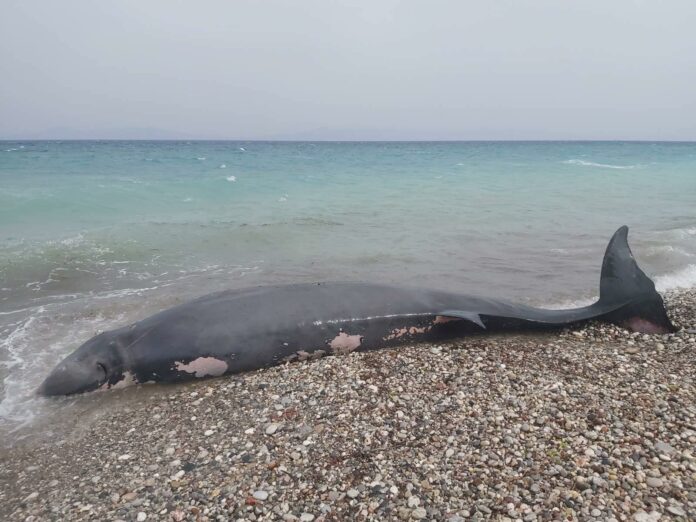
A beaked whale that washed up, dead, on a beach in Rhodes, Greece on Monday died because of 15kg of plastic that was discovered in its stomach, a necropsy revealed on Wednesday.
Fishing nets, rope, packing straps, bags and plastic cups were among the items discovered in the stomach of the 5.3 meter-long mammal.
“It is not uncommon for beaked whales to die, and other cetaceans, from ingesting plastics, which has both acute and long-term harmful effects on their health,” said Anastasia Komninou, professor at the Veterinary School of the Aristotle University of Thessaloniki, who conducted the necropsy.
“A large amount of plastic found in its stomach did not allow him to be fed properly, resulting in cachexia and death,” she added.
The beaked whale (Ziphius cavirostris) is common in Greek waters. It is believed that over 100,000 beaked whales live in the world’s oceans, with the vast majority living in the eastern Pacific.
In February Greece temporarily halted seismic surveys in the Ionian Sea near the island of Corfu after a spate of whale strandings were recorded on the island’s shores.
Plastic waste is a global problem for whales and other marine animals
“Plastic waste is now a global problem for marine organisms, which are dangerously affected, said Deputy Minister of Environment and Energy, George Amyras.
“The problem is deeply felt in the Mediterranean Sea, which is considered one of the busiest areas in the world. That is why we all need to change our way of life and daily habits to give an opportunity to the Greek seas and the wonderful species they host.
“After all, every small victory in the conservation of biodiversity is a great victory in the face of the climate crisis,” he added.
At least 14 million tons of plastic end up in the ocean every year, and plastic makes up 80% of all marine debris found from surface waters to deep-sea sediments.
The most visible impacts of plastic debris are the ingestion, suffocation and entanglement of hundreds of marine species. Marine wildlife such as seabirds, whales, fish and turtles mistake plastic waste for prey; most then die of starvation as their stomachs become filled with plastic.
They also suffer from lacerations, infections, reduced ability to swim, and internal injuries.
Floating plastics also help transport invasive marine species, thereby threatening marine biodiversity and the food web.

